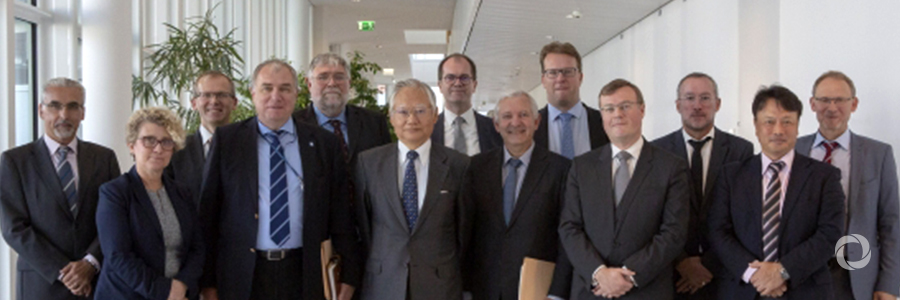The International Atomic Energy Agency (IAEA) and an association of leading national waste management organizations have pledged to strengthen cooperation and coordination on the development of safe, effective and secure solutions for the disposal of high-level radioactive waste (HLW) and spent nuclear fuel declared as waste.
IAEA officials including Deputy Director General Mikhail Chudakov, Head of the Department of Nuclear Energy, and Deputy Director General Juan Carlos Lentijo, Head of the Department of Nuclear Safety and Security, met at the IAEA in Vienna earlier this month with a delegation from the International Association for Environmentally Safe Disposal of Radioactive Materials (EDRAM). The gathering provided an opportunity to discuss key issues related to implementing comprehensive national waste management strategies, including deep geological disposal (DGD) for HLW and spent nuclear fuel.
While radioactive waste has been safely and securely managed for decades, there is still no facility in operation for disposing of HLW or spent nuclear fuel not destined for re-processing or re-use. But meeting participants noted that good progress is being made—particularly in Finland, Sweden, and France—on developing DGD, which entails permanently placing solid radioactive waste in a facility located underground in a stable geological formation.
EDRAM promotes robust disposal programmes for HLW globally to ensure safety for present and future generations. The association groups the heads of waste management organizations from 11 countries: Belgium, Canada, Finland, France, Germany, Japan, Spain, Sweden, Switzerland, the United Kingdom, and the United States.
Because DGD programmes take decades to develop, the IAEA is collecting Member States’ experiences and approaches for retaining and transferring knowledge about them. To support this effort, the heads of the national organizations representing EDRAM at the meeting—coming from Canada, Finland, France, Germany, and Japan—offered to jointly develop strategic assessments of this IAEA project. Other IAEA activities also discussed at the meeting include a project on the development and review of safety cases for both the operational and post-closure periods for DGD.
Original source: IAEA
Published on 30 October 2018

